I hope you’ve enjoyed the previous installments of “The True American.” Today is the final in the series, eight of eight. Thank you for being part of this experiment in bridging the worlds of books and newsletters.
If you’d like to continue along past these opening chapters, pick up the book from your local library or any of the retailers below and keep reading with us. The first book club discussion is next Tuesday.
Indiebound
Audible audiobook
Amazon
W.W. Norton
Apple
Barnes & Noble
Books a Million
Bookshop.org
THE CHORE (continued)
Now, sitting at work, with that nagging thought swelling within, Tom tried to assemble what he’d heard of Mark lately: the news he had received from mutual friends, the glimpses he’d had himself. He knew Mark had found a job over at the body shop with the IRS issues near Cabaret Royale, and he knew it didn’t last because Mark was caught road-tripping with customer cars. He had heard about Mark’s trying to brand himself as some kind of gun runner. He knew about the .357 Magnum someone sold Mark and the AK-47 that Mark was peddling around town through an intermediary. The two men saw each other in passing from time to time and were still friendly. Tom had helped to set Mark up with a new trade, installing granite counters in rich people’s kitchens, and had secured him a good job at a fancy house earlier that summer. He knew Mark felt terrible about accidentally breaking $3,000 worth of granite on that job, and that the mishap piled onto a series of other stresses that summer — everything from a string of parking tickets to the discovery of a lady friend of his in bed with a buddy.
The more Tom chewed it over, the more pungent the thought tasted. He remembered Mo Phillips, another ex-employee, coming by the shop just a few weeks earlier, saying some stuff about Mark being out to shoot Arabs. “I was like, ‘Whatever,’ ” Tom said. Not because such a thing wouldn’t concern him, but because he didn’t believe it. He thought to himself: There Mark goes again, “flapping his gums”; what a “wannabe.” Tom said, “He was always trying to get attention — always. He was always starved for attention, and he put on this persona like he was a rough, tough guy.”
Maybe it was stupid to have dismissed news like that. A lot of things felt stupid now. Tom thought of seeing Mark at the car wash some days after Mo’s visit. It would’ve been right in the middle of everything. Tom was shooting the breeze with an off-duty cop when Mark came over for a wash. Mark knew the cop, too, and when Tom saw Mark pull in, he made a meaningless joke. “He’s the guy that did it,” Tom hammed to the cop, pointing at Mark. Tom obviously wasn’t referring to the shootings, since he didn’t know a thing about them. He wasn’t referring to anything. Mark didn’t take it like that. He froze upon hearing those words. “Mark had this look on his face — it’s hard to put it into words — just like stark terror,” Tom said. “It was just, stop in his tracks. And Mark didn’t want to associate or talk at that point. He was like, ‘See you later,’ got back in the car and took off.”
Now the phone rang at Tom’s office. It was about the call he’d made to his prosecutor friend. They needed him down at the station at once. He explained that he was not involved, had nothing to do with it. Within minutes, several police cars showed up at the body shop. Who did this? We need to know. You need to come with us.
The next thing Tom knew, at about 6:15 p.m., he was at the Mesquite police station. “They hauled me up there,” he said, “and pretty much gave me the fucking tough guy fucking routine, and I’m like, ‘I have nothing to do with any of this shit, and I don’t want anything to do with any of this shit,’ and they were like, ‘Oh there’s a reward and this-that.’ And I don’t even care about any reward, don’t want to be involved, and I don’t have anything to do with it and don’t even want to mess with it. They locked me in a fucking room, did not come back, sat me with a paper and a pen.” They made Tom draft a statement without having seen the video the prosecutor had mentioned. He could draft a second, updated statement after watching it, they said. When he finished, they led him into a room and showed it to him.
There Mark was, holding a gun, shrieking at that nice Mr. Patel to open the register, wearing a fake beard and those tattoos that Tom had once told him to cover. If you listened carefully, you could hear the lisp that had tripped him up since Plano days.
“Oh, God,” Tom thought to himself. “Oh, God.”
For as long as Tom knew him, Mark spoke only of his daughter Cassandra — the one he’d had with Shawna in the good years. Though Tom was convinced that he knew and understood Mark Stroman better than most, he didn’t even know about his buddy’s three other children, raised in his absence by a woman named Tena, whom Stroman had married — he sixteen, she fifteen — during his third attempt at eighth grade, about a year after getting her pregnant. There was a certain elusiveness to Stroman that would haunt many of those who claimed to have a handle on the man.
If Tom saw Stroman as a gum-flapping wannabe, the three children Tom didn’t know about (who likely didn’t know about Tom) saw Stroman in their own way, based on an equally limited set of interactions: as a father who couldn’t bring himself to play father but flooded you with love when he came around; as a man who derided Blacks and minorities and seemed to know a lot of the Aryan Brotherhood guys, but who never had trouble with their half-Mexican mother and quarter-Mexican selves. So it jolted them when, one day in early October, they were in Stephenville, Texas, staying at their aunt’s, fixing to eat, when the TV announced some news about to be broken.
Amber, who had just turned sixteen and looked almost like a female facsimile of her father, had been trying to call him for a few weeks but hadn’t been able to get through. Because he’d always gusted in and out of their lives, she never thought much of it. She had no interest in the TV that day and was heading to the porch to eat her pizza in peace. But as she crossed the living room, Channel 4 went into the breaking story. A Dallas-area male had walked into three convenience stores and opened fire on three Middle Easterners. They put up a picture of her father, followed by a video of him, wearing a cutoff shirt and jeans, walking into a store, shooting the clerk, peering into the camera for a lingering moment — right at Amber, it seemed — and walking away.
Amber stood there staring at the screen. Erica and Robert, her younger siblings, started to cry. Robert ran out of the house and down the road, sobbing. He was a giant of a boy, thick like his father, a school football player whom rival teams made plans about. He bolted down to the train tracks, to some abandoned old cars. He took shelter inside one and wept.
Tena Stroman — the children’s mother and Mark’s first wife — heard the news while traveling. Her sister, the aunt with whom the children were staying, called her when they saw it on TV. Tena wasn’t regularly in touch with Mark, but she still thought of him as the great love of her life, and the news knocked her over: “My sister called me and told me that Mark Stroman has killed somebody. About that time, the phone started cutting out real bad. I heard my kids in the background crying, and I started, ‘Where are my kids? Where are my kids?’ I couldn’t tell if she said Mark Stroman killed somebody or Mark Stroman got killed. I just went to ask where my kids were because I heard them crying, and she said that Erica was in the living room crying, pulling her hair; my son, Robert, took off down the road, on the railroad tracks, crying, and wouldn’t let nobody mess with him or talk to him.”
To Tena, it just didn’t sound right. Mark was hardly a stranger to trouble, but she knew he’d never kill anyone. He was the kind of man who might slam an ashtray into a guy’s forehead if he got fresh with his woman, as he had once. He might toss a man into the wall after a few too many at the Texas Trap. But not this. She called around to the local jails she knew and gave Mark’s birth date — October 13, 1969 — because she was sure it was some other Mark Stroman who had gotten himself into this mess.
No, ma’am, they told her. That’s the guy. Same name, same DOB. There appears to be only one Mark Stroman.
It began with running what he gathered to be Arabs off the road. As Stroman cruised Dallas in the days after his country was attacked, his victims would have seen a white 1972 Chevy Suburban pulling up beside them, with a rolled-up American flag in the windshield, maps of Texas on the plastic cases of his side mirrors, and resentful stickers on the rear window. “If I had known this,” one said, “I would have picked my own cotton.”
Like other vigilantes in the feverish days after 9/11, Stroman was not entirely sure what an Arab looked like. But he felt “anger and the hate towards an unknown force,” as he later put it, and he knew enough to direct it at people with “shawls on their face.” He was stuffed full of images of the attacks from watching TV, and entranced by a mood of vengeance in the country that was making even the limpest liberals perk up to his way of seeing things. “Everybody was saying, ‘Let’s get ’em. Let’s get the dirty bastards. Let’s bomb ’em,’ ” Mark said. “Who? We didn’t know, but as Americans we was wanting justice.” He claimed to have company in his dark pursuit: “I wasn’t the only one in Dallas doing that. There was a lot of us out there hunting Arabs.”
What began as harassment on the roads — presumably, pushing cars into emergency lanes and ditches, though Stroman wasn’t specific — soon escalated. Stroman was seething over what those men had done to his country. He became certain that he had a sister working at Windows of the World, in the trade center’s North Tower, and that she had been killed. Time would show this conviction to be without basis, though in general Stroman was lucid and in control of his mind, not given to such fantasies. He somehow convinced himself, nonetheless, that his government would prove too timid, weak, and sympathetic to the enemy to avenge his sister’s death and the deaths of all the American innocents. Not long afterward, still fueled by the language of rage all around him, he explained his motivation thus, in words that would become an exhibit in his trial:
I began to feel a great sense of rage, hatred, lost, bitterness and utter degradation. Although revenge wasn’t my motive, I did want to exact a measure of equaility. I wanted those Arab’s to feel the same sense of insecurity about their immediate surroundings. I wanted them to feel the same sense of vulnerability and uncertainty on American soil much like the mindset of chaos and bedlam that they was already accustomed to in there home country. How dare they come to America and be at peace and find comfort in country, our country, my country America, and here we are under siege at home, because we are the land of freedom.
My sense of anger surged when I reflected upon the past that I’m a tax paying citizen whose hard earned dollar has been sent to those countries as a means of humanitarian aid. There homeland was a place our country feed when they were starving, medicated when sick, clothed when naked or cold, educated when in error and gave willing assistance and defended when they was under attack.
I looked at the fact that over 5,000 innocent Americans lost their lives because some foriegner felt a need to make a statement at the expense of innocent people. Well I felt as Americans we needed to exact some sort of retribution and also make a statement here at home and abroad. That if we as American’s was going to be under siege here at home then certainly they would have need to feel our pain. My sense of security and my right to live in peace and sanctity was all but shattered.
As I began to reflect upon what I could do, would do or better yet should do in the wake of the World Trade Center atrocity, I looked at the situation and took an assessment. I then found myself going to the store to make a purchase, and there perched behind the counter, here in the land of the free, home of the brave, the land of the pilgrims pride, land for which my forefathers died, the bell of life, liberty and pursuit of happiness had all been silenced by those people.
He was there perched behind the counter, here in the land of milk and honey living the freedom of liberty of the thousand’s of victims of Sept 11, and here he is in this country at our expense was this foriegner who’s own people had now sought to bring the exact same chaos and bewilderment upon our people and society as they lived in themselves at home and abroad.
It left me with this sense of just having had someone spit in my face. After all our country has done to help build, educate, and liberate their country and to see that those people thought so little of America and consequently the American way of life with such contemp and utter disregard.
In closing this was not a crime of hate but an act of passion and patriotism, a act of country and commitment, an act of retribution and recompense. This was not done during peace time but at war time. I, Mark Anthony Stroman, felt a need to exact some measure of equality and fairness for the thousands of victims of September 11 2001, for the United States of America and it’s people, the people of this great country.
At half past noon on October 5, the day after the Patel killing, Dallas police made their way to Cayuga Drive, looking for Stroman, on the strength of Tom Boston’s identification. Shortly after two, the cops saw a Thunderbird pull up. Stroman got out and seemed to remove something from his trunk. Fearing a news-helicopter-worthy standoff if they let him go inside what might have been an armed fortress, officers in raid jackets emerged and swarmed their man. Stroman tried to flee to the back of the house, removing a chrome Smith and Wesson from his waistband as he ran and dropping it to the ground. But the hiding was over. Stroman was arrested and read his Miranda rights. In the ensuing questioning, officers reported him laughing and crying at the same time.
The police soon came upon evidence suggesting that shooting three immigrant clerks was perhaps just the beginning of a much grander — and never consummated — plan. Mark Stroman, who thought of himself as an “allied combatant” going up against “enemy combatants,” as he’d heard them called on the news, may have been contemplating a gruesome attack on a Dallas-area mosque — a kind of 9/11 counterstrike.
In Stroman’s car the police found a loaded semiautomatic rifle with at least 150 matching cartridges; an Uzi knockoff with 29 cartridges; a .44 Magnum; a .45 Colt; a Top Line bulletproof vest; a pill bottle with a little cocaine; bottles of Effexor, an antidepressant, and Carisoprodol, a muscle relaxant; 2.5 grams of marijuana and rolling paper; and a hat that said, “Show me your tits.” Long afterward, Stroman addressed what he called the “rumor” of his planned attack on worshippers at the Richardson mosque. It had crossed his mind, he confessed. He would become the patriotic American inverse of “Mohammed Atta and all them fanatics” from 9/11. After all, what a statement they had made. “In my mind, if I’d walked in that mosque and leveled about a hundred or so people, that would’ve made a statement, too,” Stroman said.
The above is the last of eight serialized excerpts from “The True American” that will appear in The Ink. Copyright 2014, W.W. Norton.
Parts 1, 2, 3, 4, 5, 6, and 7.
For the full book, find it below or wherever you get your books:
Indiebound
Audible audiobook
Amazon
W.W. Norton
Apple
Barnes & Noble
Books a Million
Bookshop.org


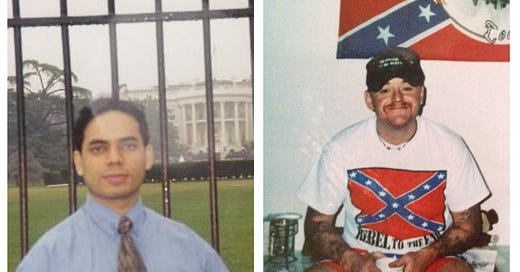




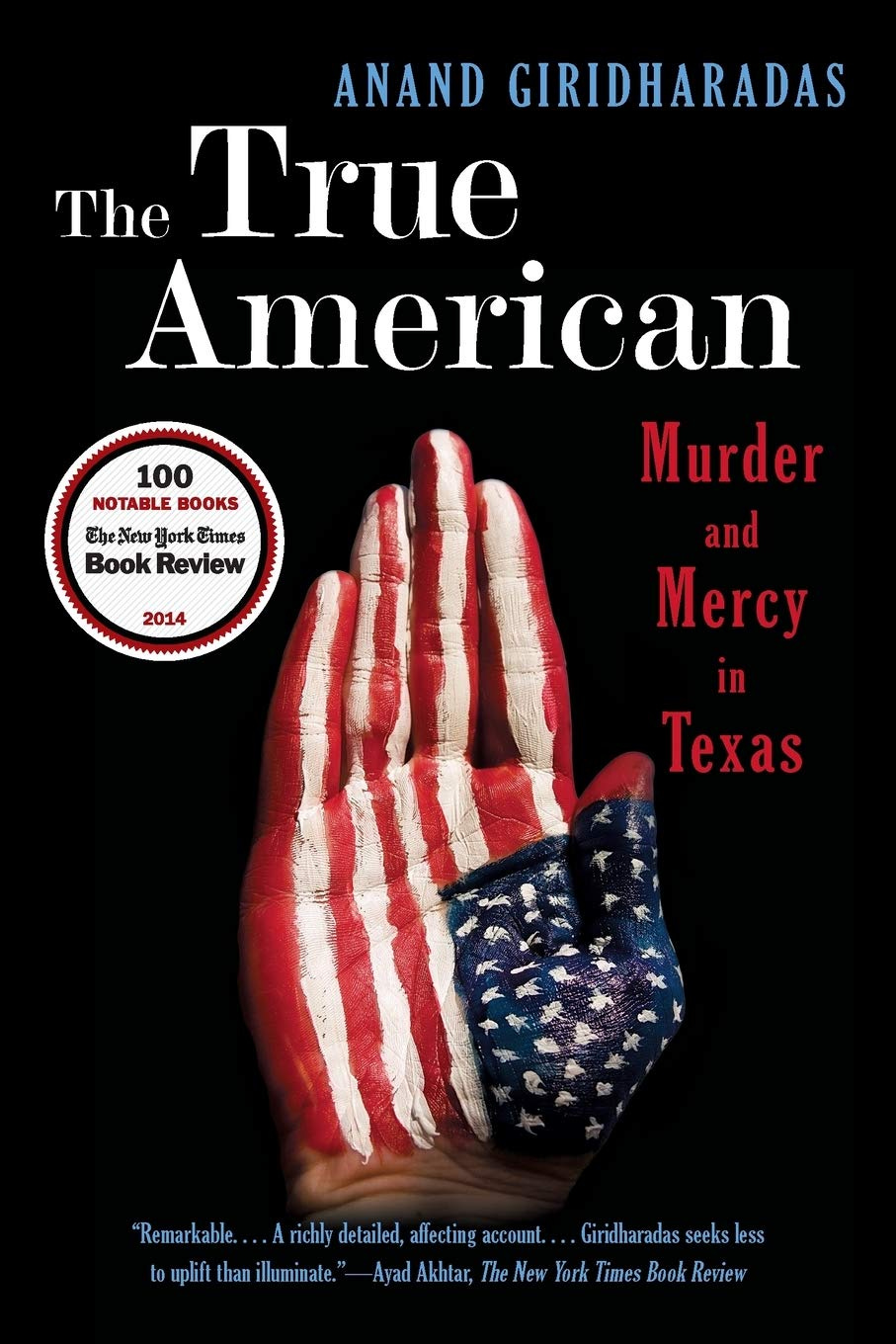

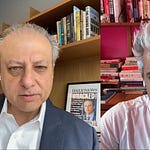
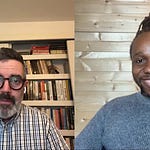
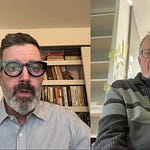
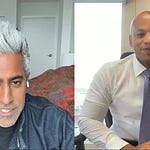
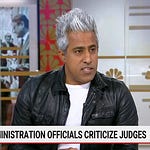
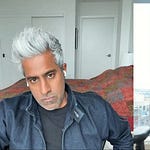
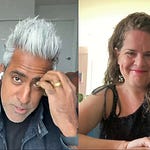
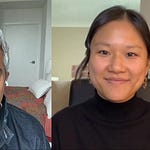
Share this post